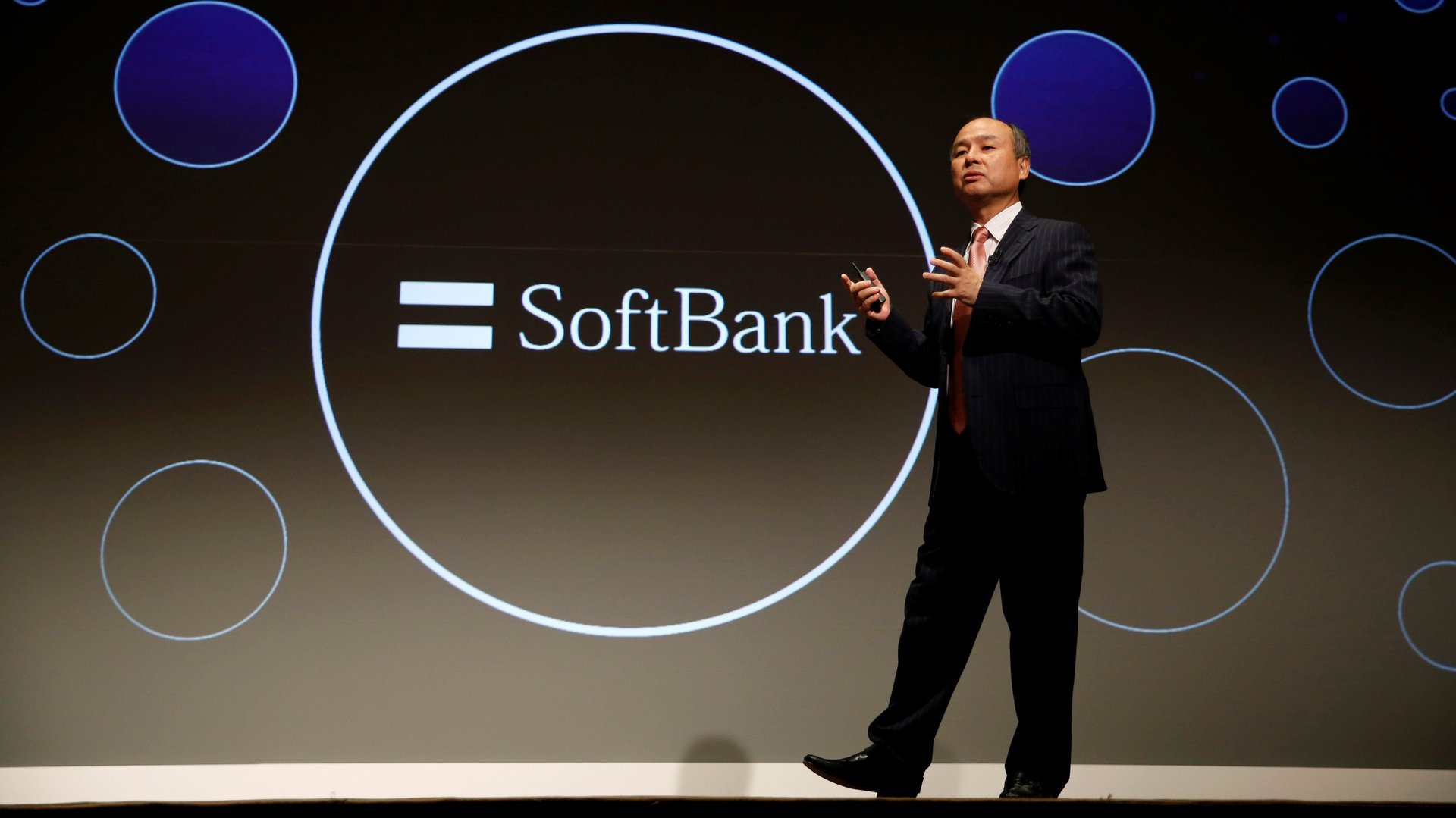SoftBank led 25% of the UK’s fintech investment last year
SoftBank’s mega-investments made a splash in markets around the world last year, including in the UK’s burgeoning fintech sector: The Japanese company’s $100 billion Vision Fund led two deals that accounted for a quarter of the capital raised by the country’s financial startups.


SoftBank’s mega-investments made a splash in markets around the world last year, including in the UK’s burgeoning fintech sector: The Japanese company’s $100 billion Vision Fund led two deals that accounted for a quarter of the capital raised by the country’s financial startups.
SoftBank’s outsize transactions in tech companies have raised questions about valuations and whether some firms in its portfolio have too much money. The Vision Fund invested $800 million in Greensill and $440 million in OakNorth, two London-based business lenders, according to industry group Innovate Finance. Those investments made up 25% of the $4.9 billion raised by financial startups (Quartz member exclusive) in Britain last year.
SoftBank and its Vision Fund have faced a wave of media and investor scrutiny lately. SoftBank founder Masayoshi Son is credited with a savvy bet in 2000 on Alibaba, which went on to become an e-commerce giant in China that’s now worth more than $600 billion. More recently, however, he and his colleagues have sunk billions of dollars into cash-burning startups, and it was reported late last year that the fund pushed portfolio companies to expand aggressively in spite of staggering losses.
There’s still a “positive halo effect” for a company associated with SoftBank, OakNorth CFO Cristina Alba Ochoa says. Vision Fund executives and its portfolio are rich with valuable connections to executives and business opportunities around the world. “In the last year they made introductions to banks and financial institutions outside the UK that we wanted to meet,” Ochoa said at an industry event hosted by Innovate Finance. “They really introduced us at the right level.”
SoftBank was contacted for this story but didn’t provide comment.
Greensill and OakNorth, unlike a number of unicorns that have emerged in recent years, say they are profitable. And profitability is becoming fashionable again after some privately funded companies, including some backed by SoftBank, got a shock from public markets. WeWork, one of SoftBank’s biggest investments, called off its IPO last year after Wall Street took a look at its financials. Last week Casper, a direct-to-consumer mattress company that didn’t receive any Vision Fund money, listed on the New York Stock Exchange at a valuation that was around half of what venture capital investors had assigned it.
The gap in valuations highlights a weakness in private markets. They “are a very inefficient pricing mechanism,” Mark Tluszcz, the CEO at Mangrove Capital Partners, told Quartz in October. “One person defines the price. Not a lot of scrutiny.”
Greensill got $800 million in May from SoftBank, and that single deal, comprised of one investor, determined the working-capital lender’s $3.5 billion valuation, according to PitchBook data. By contrast, Citigroup’s stock traded more than 250 million times on NYSE in December. (Greensill also raised $655 million of convertible debt financing from SoftBank in October.)
Another question is whether enterprises backed by the Vision Fund have more money than they know what to do with. SoftBank’s companies can be fortified with hundreds of millions of dollars in capital, which is meant to help them surge ahead of their competitors. “If people can grow and they have room to grow, I think money can be very useful,” Masayoshi Son said in SoftBank’s earnings call with analysts this week. Historically, “whatever the revolution was, always money was necessary,” he said.
The strategy can backfire. Wag Labs, a dog walking startup, was reportedly seeking $75 million in funding and ended up with $300 million from Vision Fund. It sought to use the money to go international and add services like dog grooming, but the expansion failed (paywall) and it fell behind rivals, according to the Wall Street Journal.
Vision Fund has gotten attention for its misses, but executives say it has successes, too. Rajeev Misra, chief executive of SoftBank Investment Advisers, which oversees the Vision Fund, says it has about 50 winners in its portfolio, according to a Reuters report. The fund had invested in about 88 companies at the end of last year. Misra told a conference in Abu Dhabi that a dozen or more of its investments could seek IPOs during the next 18 months.
Greensill and OakNorth, meanwhile, say they can handle their tall stack of SoftBank cash. “Our goal is to continue to be profitable but at extremely high growth rates,” said Joe Hyland, chief marketing officer at working-capital lender Greensill. “Having the money and having all this dry powder in reserves for international expansion, for acquisitions, is really important,” he said at the Innovate Finance event in London this week. “If you’re focused on growth and focused on being a market leader, the more money you have the better.”
Despite the benefits—plenty of capital and lots of connections—has SoftBank’s investment become a distraction? The CFO at OakNorth, which lends to small- and medium-size companies, said it really depends on whether the money is being spent wisely and alters the company’s outlook. “Me, as a CFO, I haven’t changed my mindset,” she said.
With reporting assistance from Alison Griswold.